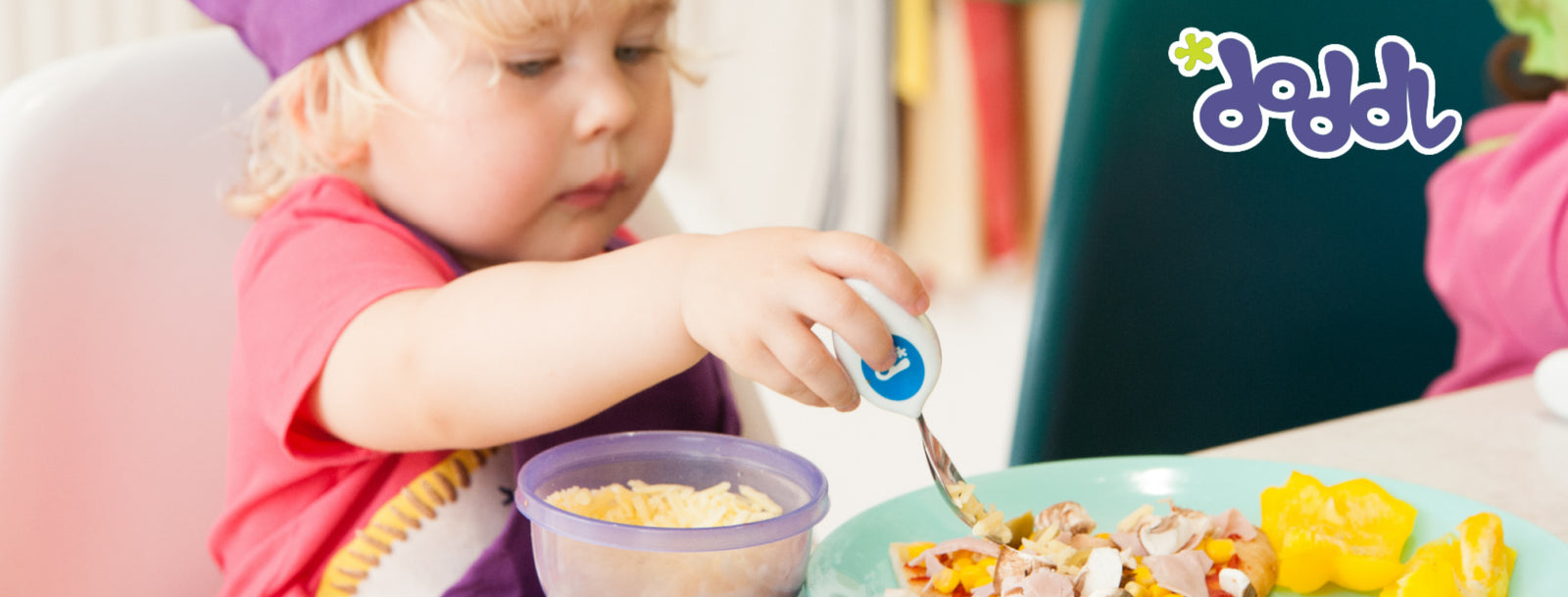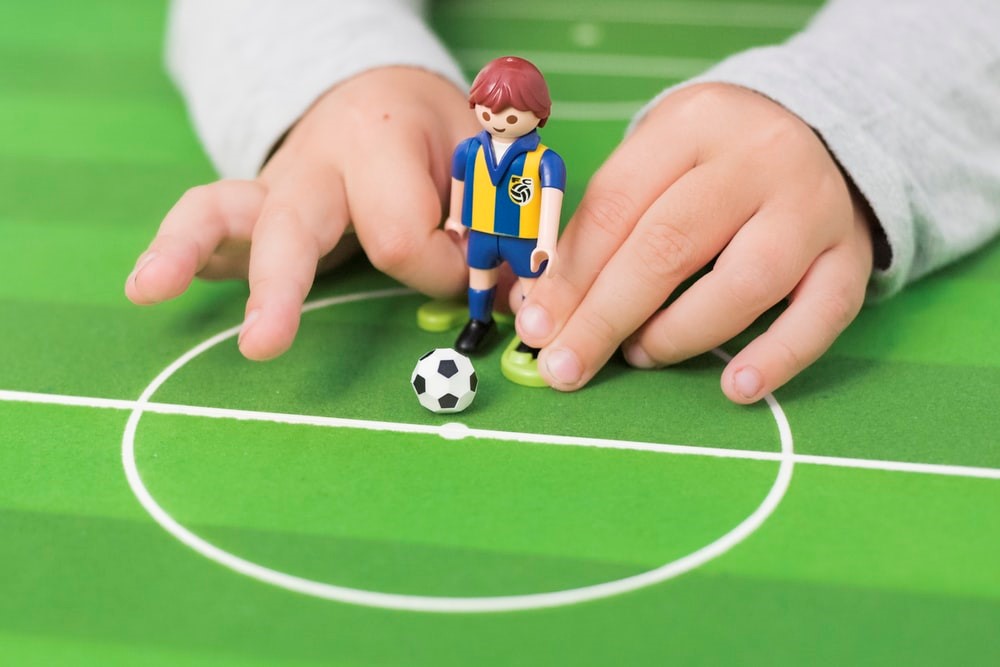Guest Blog from Sarah, a Registered Dietitian, Children’s Nutritionist and mummy from East Sussex.
Healthy bedtime snacks can play a part in helping to fill your toddler up, provide important nutrition, as well as helping them settle down to a good night's sleep.
Whether your child needs a bedtime snack is unique to them and can vary from day to day, depending on their activity levels, their appetite and whether or not they’ve been able to eat sufficiently throughout the day.
In this blog, I’ll give you 10 quick and healthy bedtime snacks for toddlers, that will ensure they get the right nutrition, as well as filling them up so they’re not waking from hunger in the early hours!
I will also share when and how to offer bedtime snacks along with the do’s and don'ts.
What is the purpose of a bedtime snack?
Bedtime snacks for toddlers are another opportunity for nutrition, to fill little tummies just enough for them to settle down for the night.
They can be helpful to fill any nutritional gaps, particularly if your little one has missed out on any meals or snacks during the day. For example, if they had a tantrum over lunchtime, resulting in very little being eaten, or ate no fruit or vegetables for dinner, you could offer one of these snacks as another opportunity to meet their nutritional needs.
However, don't fall into the trap of ‘if they haven't eaten dinner, they’ll go to bed hungry, so I must give them a snack’. Children cotton on to this pretty quickly, refusing ‘boring’ dinner foods because something better will come along later.
If you don't normally offer a snack, then you probably don't need to start.
Are some foods better than others for making you feel sleepy?
Some foods are naturally high in an amino acid called tryptophan, which makes serotonin, which, in turn, produces a by-product called melatonin, the hormone that makes you feel sleepy.
Melatonin levels rise when it starts getting dark outside and this helps our bodies regulate a sleep/wake cycle or circadian rhythm.
You could consider including tryptophan foods as bedtime snacks for your child.
Which Foods Are High In Tryptophan?
Tryptophan is an amino acid, one of the building blocks of proteins.
Veggie/vegan sources include:
-
Chia, pumpkin seeds, sunflower seeds, sesame seeds, flax or linseed.
-
Soya and soya products such as tofu
-
Oats
-
Beans and lentils
-
Nuts such as pistachio, cashew, almonds and hazelnuts
Other sources include:
-
Dairy foods including milk and cheese
-
Meat - especially turkey
-
Eggs
-
Fish and shellfish - especially those that contain the essential fatty acid DHA a form of Omega 3.
For the conversion of tryptophan into serotonin, your child's body also needs enough iron, vitamin B2 and B6 and several other micronutrients. The best way to ensure this is to offer a wide variety of foods daily, so they don't get stuck on a few favourites.
Why is my child always hungry at bedtime?
It's really common for toddlers to eat 2 - 3 snacks a day. They have small tummies and use a lot of energy so they need to refuel frequently.
If there's been a long gap between dinner and bedtime, then your toddler may well be hungry, and it's perfectly normal for them to need something to eat. Young toddlers need to eat every 2.5-3 hours or so. It can also depend on how much food they have eaten that day. If they haven't eaten much, they may well be hungry at bedtime.
However, saying they’re hungry may not be a sign that they are actually hungry. Young children are poor at interoception, which means they aren’t good at distinguishing between their internal body signals such as being hungry, tired, needing a poo, feeling sick etc.
Should I Still Give Milk At Bedtime?
Milk can be a really healthy bedtime snack. It's a nutritious fluid and although it's a liquid, think of milk as a food. It will fill little tummies up, so if you offer a larger drink of milk at bedtime, then they are unlikely to need food as well.
Is My Child Hungry Or Just Stalling Bedtime?
It’s hard to know! Some children will do anything to avoid going to bed.
Make sure snacks are healthy and nutritious and not ‘fun foods’ like biscuits, cakes or crisps. It's best to avoid caffeine-containing foods and drinks like hot chocolate or chocolate bars because caffeine will also keep them awake!
And if they refuse what you offer, then you know they are probably not hungry after all.
Children who are overtired may stall for bedtime.
How to include a healthy bedtime snack as part of a toddlers sleep routine.
If you plan on offering a snack at bedtime, then allow enough time before bed to ensure your child has enough time to have their bath, get ready for bed, brush their teeth etc.
Try to avoid giving milk in their bed or cot. Little ones often associate milk with sleep, and it can be tricky to get them to self settle during the night without milk.
Do’s and don'ts of bedtime snacks
-
Do make sure snacks are filling by including protein or dairy such as yoghurt, milk, cheese, eggs, nut butters, meat or fish, and, if possible, at least one other food group. Snacks should contain 2 - 3 food groups altogether. It's a myth that protein is difficult to digest and should be avoided at bedtime.
-
Do keep portion sizes small. They are not intended to be meal replacements.
-
Do make sure your little one is sitting down to eat to minimise the risk of choking.
-
Don’t use snacks for when your toddler is upset to soothe them. They can build an association with food to make them feel better, which can turn into overeating and emotional eating as they grow up.
-
Please don't offer a rejected or half-eaten dinner as a snack later (I’ve seen other nutritionists recommending this). This is seen as a punishment to your child and in the food psychology world is considered a negative feeding practice making dinner foods much more disliked than they previously were.
Foods To Avoid
-
Don’t offer caffeine-containing foods or drinks such as hot chocolate. Children shouldn't have caffeine anyway, but to be clear, no coffees, teas or other drinks containing caffeine such as cola.
-
Don't give them foods high in salt or sugar such as biscuits, sweets, cakes, salted crisps, etc. Sugary foods are also not good for their teeth.
-
Don’t offer their favourite foods as a bedtime snack. As I alluded to earlier, you could find they will eat less at dinner as they know they will get their favourite snack later on.
 When and how to offer bedtime snacks
When and how to offer bedtime snacks
-
When - Children are unlikely to be hungry within 90 mins - 2 hours after dinner because they haven't had enough time to generate an appetite. If there is less time between dinner and bedtime then they probably don't need a snack.
-
Offer the snack 30 - 45 mins before they actually go to bed to make sure you have enough time for getting ready for bed and there is space for teeth brushing afterwards.
-
How - You can offer 1 or 2 options to choose from so your child has some control, but they should be from the same category of food, such as an apple or a pear. Ensure they are nutritious foods and not their favourite snack.
-
Offer the snack at the table, just like you would a meal.
-
Allow no more than 15 mins for snack time, so the bedtime routine is not drawn out for too long.
Top 10 healthy pre bedtime snacks ideas
You don't want to be spending a lot of time making complicated snacks, so quick and healthy bedtime snacks for toddlers are ideal. You may also want to consider foods that are naturally higher in tryptophan or melatonin, which may improve your child’s sleep.
-
Banana slices with yoghurt (banana contains potassium, which acts as a muscle relaxant) and yoghurt contains tryptophan.
-
A handful of cherries (stones removed & chopped up) or small drink of cherry juice as cherries are natural sources of melatonin.
-
A bowl of wholegrain low sugar cereal and milk. These are sources of potassium and tryptophan.
-
Small bowl of porridge, as oats are rich in melatonin, make it up with milk and stir through some nut butter for a tryptophan boost.
-
A slice of toast with almond butter. Nuts like almonds are high in melatonin.
-
A small cup of chamomile tea, cooled. Chamomile contains an antioxidant called apigenin that may help sleep. Evidence is sketchy though, but a small drink won't do any harm. Just be aware that chamomile tea contains no nutrients and can fill small tummies without any nourishing benefit.
-
A small turkey sandwich.
-
A hard boiled egg sliced with vegetable sticks like cucumber or peppers. Eggs are a good source of melatonin.
-
Salmon pate on toast. Oily fish such as salmon or sardines contain vitamin D and omega-3 fatty acids, which are also important in the regulation of sleep.
-
A pancake topped with kiwi slices. Kiwi is rich in serotonin which is converted into melatonin, the sleepy hormone.





Leave a comment (all fields required)